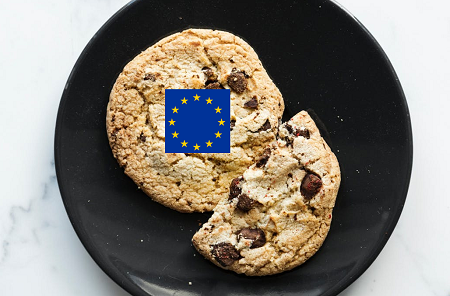The new ‘cookie law’ could see brands lose more than 40% of web traffic, meaning that marketers will have to shift to new marketing channels, according to new research.
A new international study commissioned by email service provider Mailjet among 400 marketers in the UK and France has found 30% plan to reduce the amount of cookie-based display, paid search and retargeting they carry out in the immediate aftermath of the new ePrivacy regulation.
According to the study, while 85% of marketers are confident they know the difference between ePrivacy and GDPR, 93% of companies are still using cookie-based advertising to reach their customers.
The research has also discovered that as a result of the regulation:
• 91% of marketers expect cookie request pop-ups to directly cause a loss in global web traffic, as they may restrict access to some, or all, of a website’s content
• With GDPR around the corner, more than half of marketers (54%) admit they currently purchase lists of third-party data from data sales houses or other large site and system operators
• Marketers expect they will invest more in direct communication channels such as social messenger services (72%) email (79%) and Amazon (67%) to reach customers
Across the UK and France cookies are also crucial in storing customer information such as addresses, phone numbers and payment information (55%). They also play a crucial role in tackling basket abandonment, with just over two fifths of respondents (42%) using cookies captured on their website to save shopping baskets or wish lists.
Under ePrivacy, internet users will have the option to set browser-level cookie permissions which could mean the withdrawal of millions of consumer datasets from brand view. As a result, marketers expect they will invest more in direct communication channels such as social messenger services (72%) and email (79%) to reach customers.
Data deficit
Users who don’t set browser-level cookie permissions will face cookie request pop-ups when arriving on a website. These may restrict access to some, or all, of a website’s content until the user has taken the action to opt-in or opt-out of third-party cookie collection. 91% of marketers expect this to directly cause a loss in global web traffic, although 57% anticipate that this drop will be 10% or less.
Likely more concerning for marketers, is the decreased ability to extensively track the actions users take on their website. With 31% of marketers in the UK stating that the most important information they collect via cookies is Google Analytics data, there is good reason to be worried. Marketers will need to look for alternative data sources or structure their own CRM databases that are compliant with privacy regulations.
Worryingly, more than half of marketers 54% admit they currently purchase lists of third-party data from data sales houses or other large site and system operators. Predominantly brands buy lists for both sales prospecting (70%) and marketing campaigns (75%), a practice which puts them at risk of breaching various GDPR requirements, i.e. the principle of transparency, use of data without clear consent or other legal basis.
The practice is marginally (15%) more common in France than the UK, however it has become almost routine among B2B respondents from the financial services sector (76%) and technology sector (61%).
Changing channel priorities
As marketers look to find new means of procuring data, they are instinctively looking to change their channel priorities. 79% of marketers predict they will use email marketing more as a channel post ePrivacy.
Currently, 58% of respondents state they use direct marketing always and 60% report they ‘often’ use SMS communications. For many businesses, these communications are vital in how they drive website traffic, but they could also prove to be a source of data insights as cookie-based sources dry up.
To counteract this, over two thirds (67%) of B2C marketers state they will use Amazon more. B2B companies see similar impact; 70% of marketers perceive their spending on LinkedIn ads will increase as a direct result of ePrivacy.
Marketers remain optimistic
Despite the potential fallout, overwhelmingly marketers feel ePrivacy will be a good thing for their company in the long term. Marketers will rely less on tactics like retargeting ads and build more qualitative data insights to build campaigns that resonate with new consumers (57%).
For 59% of marketers, ePrivacy will drive their brand to be more transparent about the information they track, helping customers to view them as more trustworthy. This is an important step given that without third party data purchase data buying, the most popular lead generation method will be through routes such as LinkedIn and Facebook Lead Ads (71%). This surpasses events (59%) and content marketing (39%).
Michyl Culos, Head of Marketing Communications at Mailjet, comments, “ePrivacy will impact marketers across the world in many different ways. Immediate concerns will likely centre on the loss of data fuelling customer experiences and revenue, the longer term opportunity of browser-level cookie approval means both B2B and B2C brands will have to focus strategically on how they can grow and maintain the most valuable customer insights that really drive their business forward.”
Methodology
The research, conducted by Morar Consulting and commissioned by Mailjet in March 2018, was the result of surveying 400 marketers and marketing decision makers from agencies and non-marketing businesses across the UK and France.

